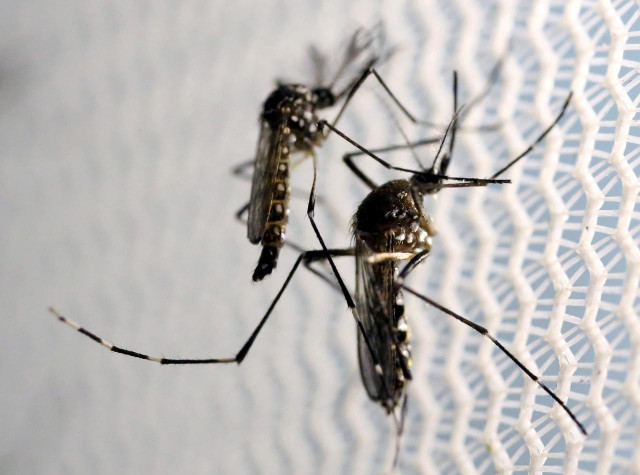Two more succumb to dengue virus
35 new infections surface in Rawalpindi during last 24 hours

The dengue virus claimed two more lives in Rawalpindi, while 35 new infections were reported during the past 24 hours.
The total number of dengue patients in Rawalpindi has now reached 1,712.
The Benazir Bhutto Hospital (BBH) has run out of dengue testing kits, resulting in a temporary suspension in testing until the kits were provided to the hospital.
Meanwhile, 20 cases were reported in the Holy Family Hospital (HFH) and 15 in the District Headquarters (DHQ) Hospital.
The three major hospitals in Rawalpindi are currently treating 203 dengue-infected patients collectively, five of whom are in critical condition.
The district administration has intensified anti-dengue operations across the district and has delegated the task of searching and exterminating dengue larvae to the field staff. The hospitals are making arrangements to increase the number of beds from the current quantity of 274.
NIH issues advisory on dengue
Keeping in view the seasonal trends of dengue fever, the Field Epidemiology and Disease Surveillance Division (FEDSD) of the National Institutes of Health (NIH) has issued an advisory on prevention and control of the disease.
According to NIH, the objective of the advisory is to sensitise human and animal healthcare authorities to further strengthen and improve the level of preparedness in the prevention and control of the disease.
The advisory states that dengue is a viral disease transmitted by mosquitoes of the genus Aedes (Aedes aegypti and Aedes albopictus). It is endemic in almost all geographical regions of Pakistan and there is substantial evidence that its multiple serotypes are circulating in different areas of the country.
Despite patchy surveillance, a total of 53,498 cases with 95 deaths due to dengue fever were reported during 2019 while 6,016 cases were reported during 2020, and 3,795 cases were reported up to September 2021.
The NIH emphasised that it is imperative to work on prevention while staying vigilant for the detection of cases and ensuring preparedness to launch response activities for curtailing the transmission of dengue fever disease.
This advisory is intended to facilitate the healthcare authorities and professionals in effectively dealing with the potential challenge during the dengue season.
The advisory also calls upon hospitals to build their capacity for management of patients, to keep rapid response arrangements in place, and to maintain regular liaison with relevant departments and stakeholders.
As per the advisory called for wearing long-sleeved clothes, using mosquito repellent lotions, sprays and use of mosquito repellent coils.
Published in The Express Tribune, October 26th, 2021.


















COMMENTS
Comments are moderated and generally will be posted if they are on-topic and not abusive.
For more information, please see our Comments FAQ